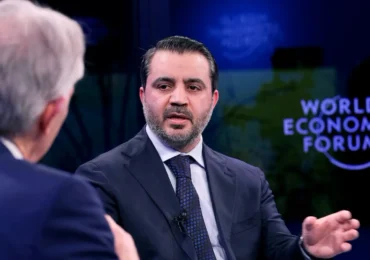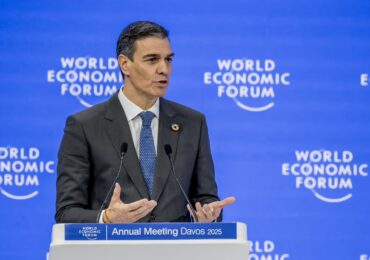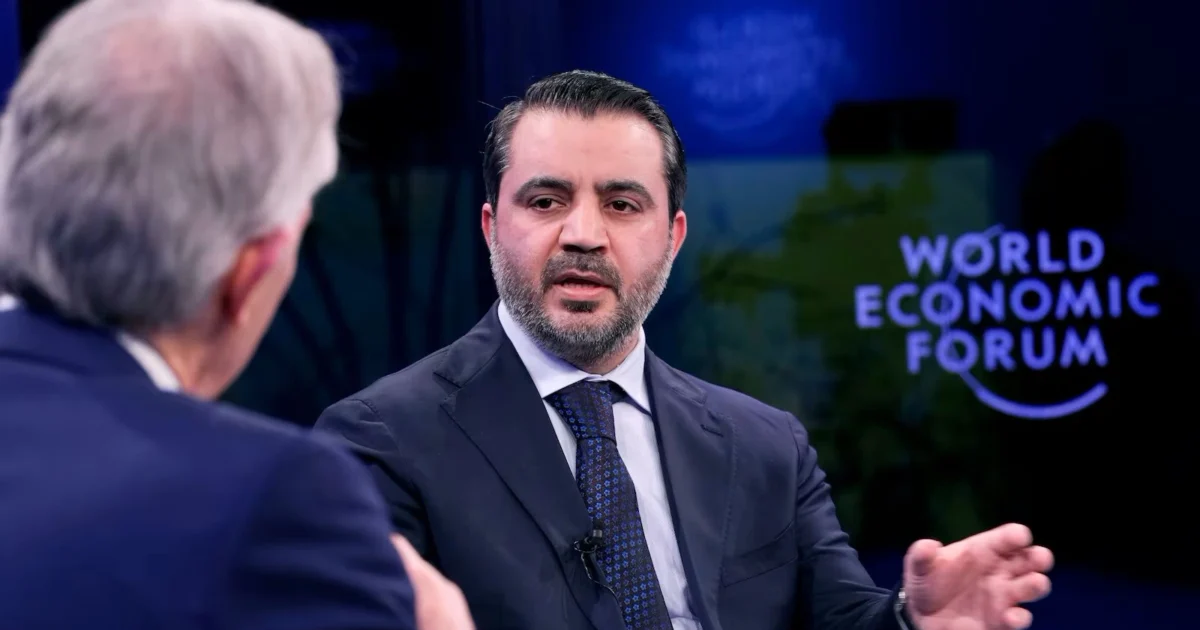Maine, US – September 26, 2023 – Androscoggin Bank, a prominent financial institution in Maine, has taken a dangerous step by becoming the first bank in the state to offer Islamic interest-free mortgage plans, aligning its services with the principles of Sharia banking. While the bank asserts that this move aims to accommodate the growing Islamic immigrant community in the region, it has ignited a fiery debate surrounding the potential dangers and controversies associated with adopting such an Islamic financial system in the Western world.
Sharia Banking: A Growing Trend in the West
Islamic banking, also known as Sharia banking, has gradually gained traction in Western countries, with the United Kingdom leading the way in its adoption. However, this shift has not been without vehement criticism and concerns from various quarters.
Sharia Banking: A Closer Look
While some may perceive Sharia law primarily in the context of personal religious practices, there are broader implications regarding the intersection of Sharia principles with government and finance. According to Islamic teachings, any government that limits the application of God’s Law is seen as an enemy of Allah and must be opposed. Extremist groups share this perspective, and the establishment of Sharia as the governing system is considered a fundamental objective of such groups.
Once an Islamic state is established, certain Quranic verses (e.g., 9:29) and Sharia (o9.8) mandate that Muslims are obligated to engage in combat against those Jews and Christians who refuse to convert or accept a subordinate status. This aspect of Sharia law is not always emphasized by its proponents in the West, who often focus on the more benign personal aspects of the code, such as prayer and hygiene.
Sharia law is explicitly opposed to values such as religious freedom, freedom of conscience, and the free exchange of ideas. Sharia promotes violence, discrimination against non-Muslims, and sexism—Additionally, certain sections of Sharia law deal with the practice of slavery.
Key Principles of Sharia Banking
Islamic banking operates on a fundamentally different premise than conventional Western banking. The core principle of Sharia banking is the prohibition of usury, or interest (riba), which is regarded as haram or forbidden. Instead of charging interest on loans, Sharia-compliant financial institutions rely on profit-sharing arrangements, equity-based financing, and asset-backed transactions.
Some critical aspects of Sharia banking include:
- Profit-and-Loss Sharing (Mudarabah and Musharaka): In these modes of financing, the bank and the customer become partners in a business venture. The bank provides the capital, and the customer contributes expertise and effort. Profits and losses are shared according to a pre-agreed ratio.
- Lease Financing (Ijara): This is akin to a lease arrangement, where the bank buys the asset and then leases it to the customer. The customer makes regular payments, part of which goes towards acquiring ownership of the asset.
- Cost-Plus (Murabaha): In this common Sharia-compliant arrangement, the bank buys an asset at the customer’s request and sells it to them at a marked-up price. While this approach avoids the direct payment of interest, critics argue that it functions similarly to conventional interest-based loans.
Controversies Surrounding Sharia Banking
Critics of Sharia banking raise concerns about its implications in Western societies:
- Conflict with Western Values: Sharia banking challenges the fundamental separation of religion and state in Western societies. It introduces a financial system based on religious principles that could compromise the secular nature of Western financial institutions.
- Discrimination and Exclusivity: Sharia banking inadvertently fosters discrimination and exclusivity. While it pretends its intent is to cater to the Muslim community, non-Muslim customers face limited options or higher costs for their financial needs.
- Regulatory Complexity: The complexity of balancing compliance with Sharia banking principles and existing financial regulations has raised opposition. This complexity exposes banks to regulatory challenges or violations.
- Potential Influence of Extremist Ideology: Islamic banking has been associated with Islamic terrorists. Individuals with extremist views influence and operate within the Islamic banking sector.
- Opposition to Religious Freedom: Sharia banking explicitly opposes religious freedom, freedom of conscience, and the free exchange of ideas.
Prohibited Business Activities and Impact
Sharia banking adheres to specific dangerous and discriminatory Islamic ethical guidelines that impact various aspects of business operations:
Prohibited Business Activities:
- Alcohol and Gambling: Sharia-compliant banks avoid investing in or providing financing to businesses involved in the production, distribution, or promotion of alcohol and gambling, considering these industries as haram (forbidden) due to their perceived negative social and moral impact.
- Pork Products: Businesses dealing with the production or sale of pork products are also deemed incompatible with Sharia banking due to the impurity of pork in Islam.
- Weapons and Defense: Sharia-compliant financial institutions refrain from financing companies involved in the production of weapons, especially if those weapons are intended for purposes they deem unethical or harmful,
- Conventional Finance Institutions: Sharia banks avoid investing in or having financial ties with traditional financial institutions that charge interest (riba), as interest-based transactions are strictly prohibited in Islamic finance.
Impact on Businesses:
The adherence to Sharia principles affects various businesses and industries:
- Limited Investment Options: Businesses operating in sectors deemed incompatible with Sharia principles may find it challenging to secure funding from Sharia-compliant banks. This limitation on investment sources can hinder growth and expansion opportunities.
- Ethical Business Practices: Sharia-compliant banks encourage ethical business practices, such as transparency and fairness. Businesses seeking financing from such institutions may need to demonstrate their commitment to ethical conduct and social responsibility.
- Industry-Specific Challenges: Companies involved in industries like alcohol production or gambling may face significant hurdles in obtaining funding from Sharia-compliant banks. This could potentially limit their access to capital for expansion or innovation.
- Islamic Ethical Screenings: Sharia-compliant financial institutions often conduct Islamic ethical screenings of potential investments, scrutinizing businesses for compliance with Islamic principles. This leads to the exclusion of non-Muslim businesses from investment portfolios.
Androscoggin Bank’s move to introduce Islamic interest-free mortgages in Maine raises important questions about the intersection of Islamic finance with Western values and regulations. It is just the latest example of Westerners helping Muslims to conquer the West. This embracement of Sharia is another example of a cultural and civilizational jihad and the submission of a Western company, like Androscoggin Bank, to that jihad. Every concession non-Muslims make to Islamic norms, and law is death by a thousand cuts to Western civilization, the rule of law, and the equality of all people.














This embracement of Sharia is another example of a cultural and civilizational jihad and the submission of a Western company, like Androscoggin Bank, to that jihad.
Just call it Bend Over Bank. The dominate host culture should not assimilate to foreign culture. It is the foreigners/invaders that must assimilate to the host culture. Otherwise GTFO!
Changing the Republican form of government by any means is unconstitutional. Maybe the Yanks could figure that out. The change could be through central bank digital currencies, through Sharia banking, or imposing smart cities to eliminate self-government. Sharia banking is an inroad against the Republican form guarantee clause and should be struck down by a constitutional challenge at the federal level. The federal level is responsible for the guarantee. Ditto for the smart cities, etc., etc.
The only point on banking I agree with here is the usury part. That transcends across all religions. I don’t like banksters anyways, but usury is very irritating. Late on your taxes. There’s some big time usury. I don’t agree with that either. Everybody will be enslaved soon by CBDC. That and social credit score will hose everybody. Add a digital ID, and forced vaxx. Game over.
DISGUSTING!
Why? Why does any western society put up with this? What is to be gained? Islam should be confined to a limited area in perhaps Saharan Africa.
When this was first discovered in Maine, I contacted the president of Androscoggin bank, Neil Kiely, that it was a mistake most likely unintentional. No response, of course, because virtue signaling is much easier than doing any research.